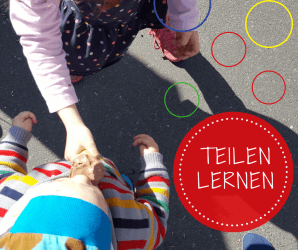
Learning difficulties can become a massive burden for children and their parents. As a rule of thumb, if the learning problem persists for more than three months, professional help should be sought. A learning therapy carried out by a competent therapist can achieve very good results.
The reasons for learning difficulties and learning disorders can be varied. Possible causes are motivation difficulties, attention problems, poor learning techniques, fear of exams or psychological problems. Even when correcting the so-called partial performance weaknesses, to which the reading and spelling weakness (dyslexia) and weakness in arithmetic (dyscalculia), the learning therapy treatment is often very successful.
Typical for dyslexia are twisted letters or omissions, but also the confusion of similar looking or sounding sounds (eg "b" with "d", "m" with "n" or "d" with "t"). The length of sounds is not recognized, for example "heaven" becomes "Himel" not only when writing but also when speaking. Despite practicing, the student keeps making the same mistakes, the child reads “spelling” and has problems putting the words together. It mostly understands the meaning of the read only superficially or not at all. It is understandable that affected children do everything they can to avoid reading and writing wherever possible. Doing homework and learning becomes a stress test for parents. Nevertheless: Not all of the problems mentioned always arise in the course of dyslexia.
With the so-called dyscalculia (Dyscalculia) there are no uniform symptoms. It is characterized by incorrect thinking regarding mathematical categories such as quantity, number, status and deficits in the practice of basic calculation types. So the child can e.g. B. do not understand what the number 7 actually means or which function such a number fulfills, or it is very difficult to solve the basic calculation types in the number space 10, even though it is already in the second class. An indication of weakness in arithmetic can also be that the multiplication table is not mastered despite intensive practice or that solving word problems is very difficult.
A third learning disorder in which learning therapy is used is the attention deficit disorder with or without hyperactivity (short ADD or ADHD). It manifests itself through a severe lack of concentration with or without excessive urge to move. It is also characteristic that the children lack self-control and act very impulsively.
The fight against learning disabilities is teamwork
At the beginning of every therapeutic treatment there is always a detailed diagnosis. This means that specific diagnostic procedures and discussions with parents, children and teachers determine exactly what the problem is. This diagnosis can also be made by the respective school psychologist. Based on the results, a so-called support plan is developed, which defines which goals in learning therapy have priority and how they should be achieved. No matter what learning disorder it is, in addition to working with the child, the focus is also on cooperation between parents and teachers, because it is important to guarantee comprehensive support with the involvement of all school partners.
What can parents do if their child has a learning disorder??
Every learning disorder should be treated as early as possible. Parents should by no means wait, but speak to the teacher or contact the school psychologist to clarify whether there is a learning disorder. It is by no means helpful to reproach the child or to put pressure on the child; the children’s psychological situation must be taken into account in the treatment and support. Patience, praise and motivation are indispensable elements in the support of children with learning difficulties. The strengths of child Emphasizing and praising to help them become more self-confident is important for the child’s development.
How can parents support a child with dyslexia??
Can help to divide long words while reading or to use a reading template. The child should also be helped to pronounce words correctly. Dyslexics quickly get tired, so there should be enough breaks when studying. Time pressure should be avoided as attention and thoughts are volatile. In any case, it is important that the funding is given individually or in small groups takes place. Computers can also be used; the use of dictionaries should be practiced intensively. Exercises such as: Finding rhyming words (giant meadow), distinguishing similarity words (much – fell) promise success. It is important to note, by the way, that dyslexia can be felt not only in German and mathematics classes, but also in other subjects.
For the Treatment of arithmetic problems is a very individual Procedure required. The child should understand them before computing is automated. If a child simply learns the learning material by heart, he quickly forgets what he has learned. Therefore, individual support for dyscalculia is absolutely necessary. Often it is already at the beginning of school time to work out the simplest basics with the child.
What to do about lack of attention?
Children with attention deficit hyperactivity syndrome need a lot of care and an atmosphere conducive to development. Measures that usually have a positive impact are:
- Creating a calm atmosphere
- Rules should be formulated positively and as briefly as possible.
- Praise and reward for adhering to rules, but also consistency in upbringing to show boundaries and freedom.
- It is also important to structure the daily routine, i.e. H. Doing homework, going to bed and the like should always be done at the same time.
- Order is of great importance in both learning and playing. Interfering stimuli such as noise, uneasy light, television, radio, etc. should be avoided.
- Praise also plays an important role. It should be praised clearly and spontaneously what the child did well.
- In order to give ADHD children more security, it is important to give them external control, since it is very difficult for them to control themselves.
- If the child is not under control, it is a good idea to offer him a place where he can calm down.
In all of the learning disorders mentioned there is one individual support, Funding that is “tailored” to the child – as is also offered by learning therapy – is essential.
Ultimately, it is important to find a positive attitude towards learning as a whole, because this makes it easier for the child to fulfill learning tasks. Unfortunately, negative thoughts like "I can never do this" are often to be found in schoolchildren. It is therefore important to consciously steer your thoughts in a confident direction. Once this "homework" is done, the success of further measures will not fail.
RELATED ITEMS
-

Learning to read – this is how parents can help their children
Being able to read is a matter of course for us adults in this country. Men and women read automatically when confronted with a word,…
-

When can children start sharing? And how can you learn it?
Sometimes my son and I sit together and he wants to share his holy yogurt with me. His favorite food. He doesn’t calculate how much he does…
-

Learning to swim: How parents teach their children to swim themselves, Berlin newspaper
It’s this way . : The Berliner Zeitung has moved Nine tips: How parents teach their children how to swim 03.07.18, 1.30 p.m. 59…
-

"This is baby bacon! As soon as the little ones start to crawl and run, it grows very quickly … “We parents calm down like this,…
